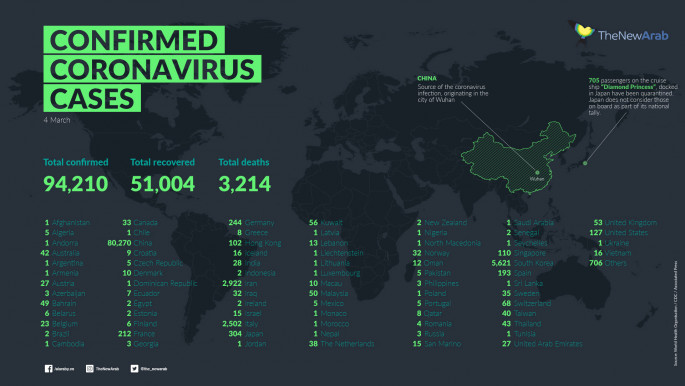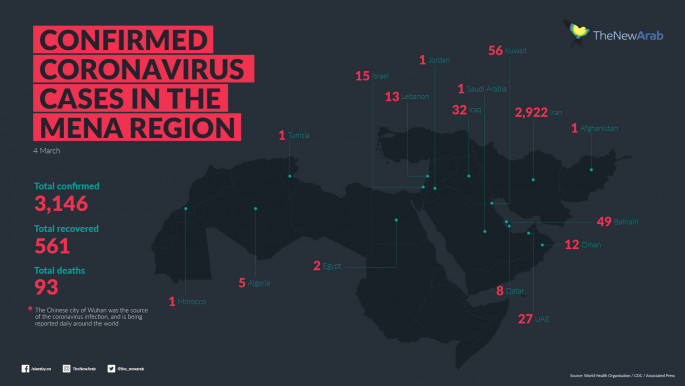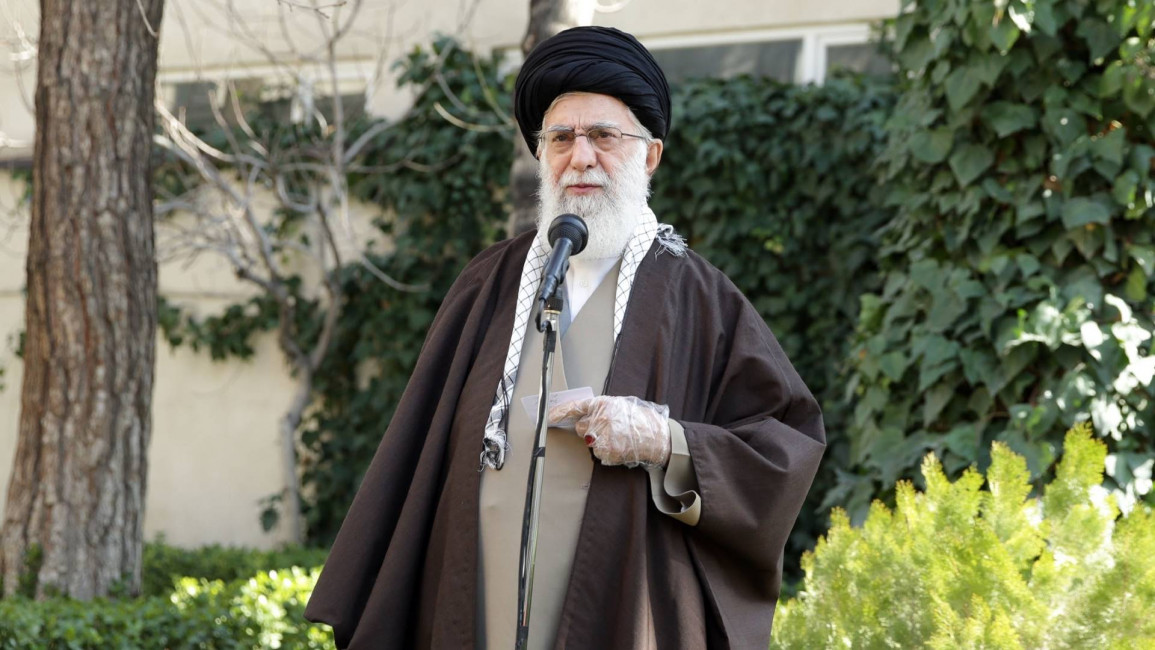Iran cancels Friday prayers amid rapid coronavirus spread
Friday is the main congregational day of prayer in Islam, and traditionally an important event for Iran's clerical rulers. Tehran and other areas had cancelled Friday prayers last week over the outbreak.
Iran earlier announced that the new coronavirus has killed 92 people amid 2,922 confirmed cases across the Islamic republic, the highest death toll in the world outside of China.
Health Ministry spokesman Kianoush Jahanpour announced the new figures at a news conference in Tehran, raising Iran's death toll from the new illness to above that of Italy, where there has also been a serious spike in infections.
There are now over 3,140 cases of the new virus across the Middle East. Of those outside Iran in the region, most link back to the Islamic Republic.
Saudi Arabia announced on Wednesday it was expanding a ban on foreigners visiting Mecca and Medina to include citizens and residents.
| |
The virus has struck down top leaders inside Iran's civilian government and Shia theocracy, with at least 23 MPs infected, 8 percent of its parliament.
On Monday, it was announced that an adviser to the country’s Supreme Leader Ayatollah Ali Khamenei had died at the age of 71 from the virus.
Iran has been facing severe medical shortages since the US pulled out of a landmark nuclear deal and reimposed crippling sanctions on the country in 2018.
Washington had exempted humanitarian goods, especially medicines and medical equipment from its punitive measures.
But international purchases of such supplies are forestalled by banks being wary of conducting any business with Iran, for fear of falling foul of sanctions themselves.
This has sent medicine prices in Iran soaring and has had severe consequences, especially for people suffering from rare or special diseases that require imported medication.
Worldwide, coronavirus has infected more than 90,000 people and caused over 3,100 deaths.
But experts also worry Iran may be under reporting the number of cases it has.
“The virus has no wings to fly,” Jahanpour said. “We are the ones who transfer it to each other.”
Iranian President Hassan Rouhani meanwhile acknowledged that the virus was in nearly all of Iran's 31 provinces while speaking at a cabinet meeting Wednesday.
“This disease is a widespread one,” he said, according to a transcript. “It encompasses almost all of our provinces and is, in a sense, a global disease that many countries in the world have become infected with, and we must work together to tackle this problem as quickly as possible.”
Follow us on Facebook, Twitter and Instagram to stay connected



